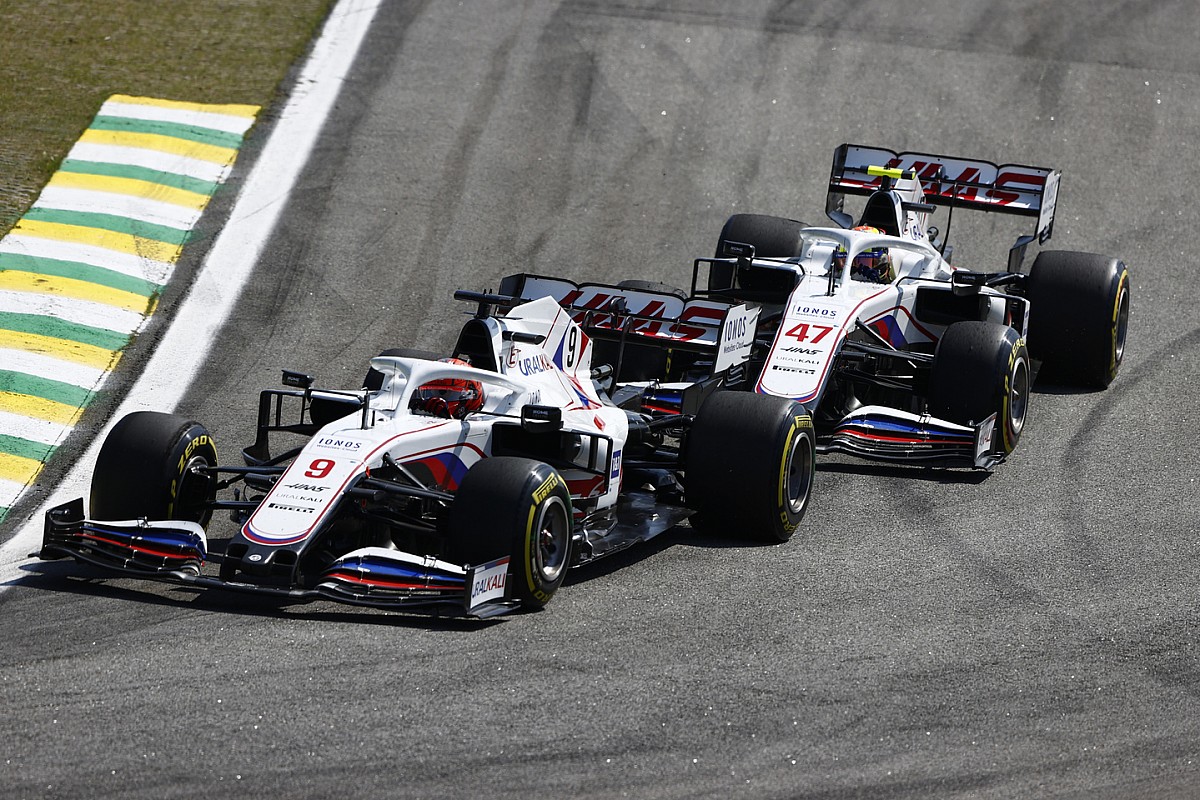
Schumacher and Mazepin both graduated to F1 last year from Formula 2, joining Haas as part of an all-new line-up for the American team.
Haas treated 2021 as a transition year, opting against any development of its car ahead of the campaign so it could divert all of its resources to the new regulations in 2022.
It meant the team finished last in the constructors' championship, failing to score any points, although it did show signs of progress towards the end of the year.
2021 marked the first time Haas had ever fielded a rookie driver in F1, let alone two, and Steiner admitted it had "been an experience".
"Going in, we knew what we were doing, but the totality of what would happen, I wasn't aware of," Steiner told Motorsport.com.
"You learn and you realise how young these guys are, how inexperienced they are and how much help they need.
"Some of the stuff, they need to learn themselves. You cannot teach them. You can guide them, but you cannot tell them. You swim or you sink. If you try to keep them afloat, that's a full-time job that I don't want to do.
"To learn the hard way is better, then it's in you, better than pampering them along. With the car not being competitive, that was easier, because we didn't need the points.
"[In 2022], we want to score points again. But they learned a lot themselves by getting stuff wrong.
"The only good thing about this year was I didn't need to get upset, we had nothing to lose."

Schumacher and Mazepin both had crashes through the 2021 season, as well as a couple of close on-track moments with each other and disagreements over team orders.
Mazepin told Motorsport.com at the end of the season that he was now "neutral" with Schumacher after some "difficult times" through their rookie season.
Steiner explained that the drivers had to shift their mentality to realise they were not fighting to be the lead driver as in junior categories, but instead working together for the good of the team.
"In the beginning of the season, they were fighting against each other, and it's like, 'guys, you're fighting over 19th'," Steiner said.
"That doesn't do anything for the team. At some stage, they understood, F1 is not about beating one driver.
"Like when you have a strategy job in practice – 'why do I have to do this job and not the other one?' – because it's better for the team. It's a simple answer.
"For us, they are not A and B, they are A and A. Everybody will get the same opportunity when we work out what's better for the team. No differentiation, equal status - that's how it works."







